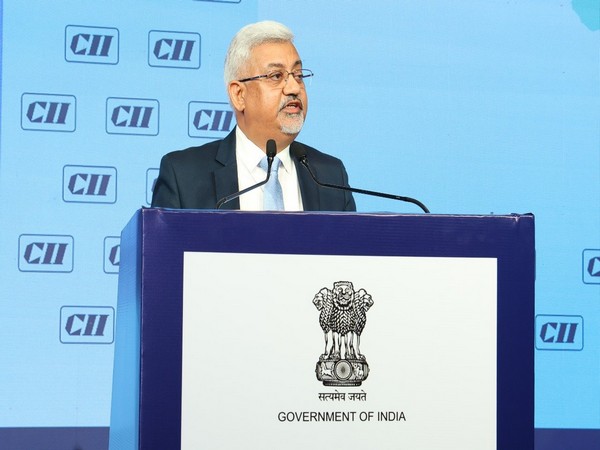
India calls for unified African stance on WTO reforms and key global issues
NEW DELHI : Commerce Secretary Sunil Barthwal urged African countries to unite in calling for reforms at the World Trade Organization (WTO) and to address key issues such as food security, technology transfer and industrial policy.
Barthwal told the India-Africa Conclave that a unified approach is essential for achieving reforms and improving global trade practices.
“India and African countries share strong common views and interests on food security, agriculture, technology transfer, and WTO reforms. In a fragmented and protectionist global environment, it is crucial for both regions to stay united and continue to pursue the mandated priorities agreed upon at the Doha Development Round in the WTO,” the commerce secretary said.
The commerce secretary offered tailored capacity-building programmes to African nations in trade facilitation, promotion, finance, policy, and negotiations through India’s key institutions, including the Centre for WTO Studies, the Centre for Trade and Investment Law and the Indian Institute of Foreign Trade.
India is also planning to start new free trade agreement (FTA) discussions with South Africa, a key constituent of the South African Customs Union (SACU).
Beyond exports, there is significant potential to expand India’s import basket from Africa. A Commonwealth Secretariat study highlights that 17 African countries could supply 129 unique intermediate products to India, currently sourced from less competitive suppliers.
Facilitating market access for these African products can benefit both India and Africa, enhancing trade opportunities and competitiveness.
India-Africa trade grows with new logistics plans
In FY24, India exported goods worth $38.17 billion to African countries. Key destinations included Nigeria with $3.6 billion, South Africa with $8.71 billion, and Tanzania with $4.62 billion, among others. Key products exported to African nations include petroleum products, engineering goods, drugs and pharmaceuticals, rice, textiles, electronic goods, etc.
The secretary also announced plans to share the PM Gati Shakti master plan and the Unified Logistics Interface Portal (ULIP) with Africa to support the development of efficient logistics infrastructure and improve multimodal connectivity. These programs demonstrate how digital tools and infrastructure can enhance logistics efficiency and reduce costs.
The PM Gati Shakti master plan is an integrated framework designed to enhance logistics infrastructure and improve multimodal connectivity across India.
The EU’s stringent safety norms have significantly limited India’s exports of chilies, tea, basmati rice, milk, poultry, bovine meat, fish, and chemicals.
The 13th Ministerial Conference of the WTO, held in Abu Dhabi in February, concluded without reaching consensus on key issues such as agriculture and fisheries, despite an additional day of negotiations and intensive efforts.
India, along with other G-33 members, had opposed linking public stockholding of grains to broader agricultural trade reforms, preserving their right to support their agricultural sectors without facing legal challenges in the WTO’s dispute system

